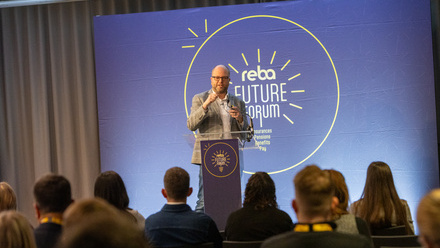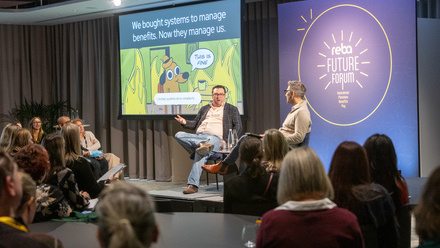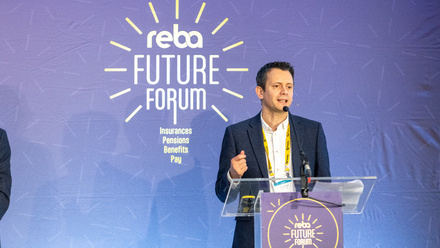Three ways employers can meet their employees’ changing needs to ensure inclusivity and engagement

Here are three key ways organisations can meet their employees’ changing needs while ensuring inclusivity and engagement.
1. Connect to purpose
Having a clear, relatable and shared company purpose connects people to one another and to the organisation. In a time where there is so much change and uncertainty, it can be difficult to truly connect and rally around ‘purpose’. However, it’s often in the difficult times that great experiences and opportunities are born and we have witnessed this a lot recently, with many organisations turning their efforts to support the battle against COVID-19.
Whether it’s manufacturers adapting to make PPE equipment or supermarkets delivering food care packages to frontline workers, we have seen some amazing examples of people pulling together and connecting to a higher purpose. Not only is this an amazing thing to do for the recipients, but it makes employees feel part of something much bigger than themselves, giving them pride in their organisation as it ‘steps-up’ during the pandemic.
Employees who find a meaningful purpose in their work are twice as satisfied with their jobs, and are three times as likely to stay with their organisation and contribute to its success, according to our Global Culture report (2020). It’s clear that focusing on ‘purpose’ is key.
2. Focus on the individual
Now more than ever, it’s important for managers to get to know their employees on a personal level. Taking time out of their busy working days to ask simple questions like, “how are you doing?” rather than work-related questions is important. So is putting time aside for one-to-ones and using the time to talk outside of work to see how the employee is coping under the current circumstances.
Being a compassionate and caring leader helps to improve employees’ mental health and also drives productivity and engagement. In fact, when leaders make an effort to understand their employees’ jobs, their struggles, challenges, workload and responsibilities, employees feel their leader is invested in the work they do and there is a 29% increase in engagement, our Global Culture report (2020) shows.
Getting to know each employee better will also make it clear which development gaps need filling and what additional support is required. During times of crisis, it’s easy to put development opportunities on the back burner, however they are more important than ever as they demonstrate that the company is heavily invested in its employees.
Now’s the time to upskill employees and focus on equipping them for the future. It’s the organisations that are continuing to invest in their people that will ultimately enjoy higher levels of engagement and retain their top talent when it’s needed the most.
3. Be flexible
As people continue to work from home, they’ll be experiencing a range of challenges, from juggling work and kids through to dealing with total isolation in a small flat in a big city. Whatever an individual’s circumstances, they must be given the freedom to navigate their challenges, and therefore flexible working is vital.
Giving employees the autonomy to be in charge of their own working day, not only shows trust from leaders, but it also increases employee engagement. According to our Global Culture report (2020), when an employee feels empowered to make their own decisions there is a 48% increase in engagement.
With employees’ circumstances dramatically changed over the past few months, it’s important for organisations to focus on employees’ changing needs, especially when many are still working from home.
By connecting employees to a higher purpose, focusing on them as individuals and promoting flexible working, employers can provide a solid foundation for an engaged, connected and motivated workforce.
The author is Georgia Portwain, culture and engagement strategist, O.C Tanner Europe.
This article is provided by O.C. Tanner Europe.
For more on O.C. Tanner’s research findings, read its Global Culture Report.
Supplied by REBA Associate Member, O. C. Tanner
Giving teams the integrated tools they need when, where and how they need them.







